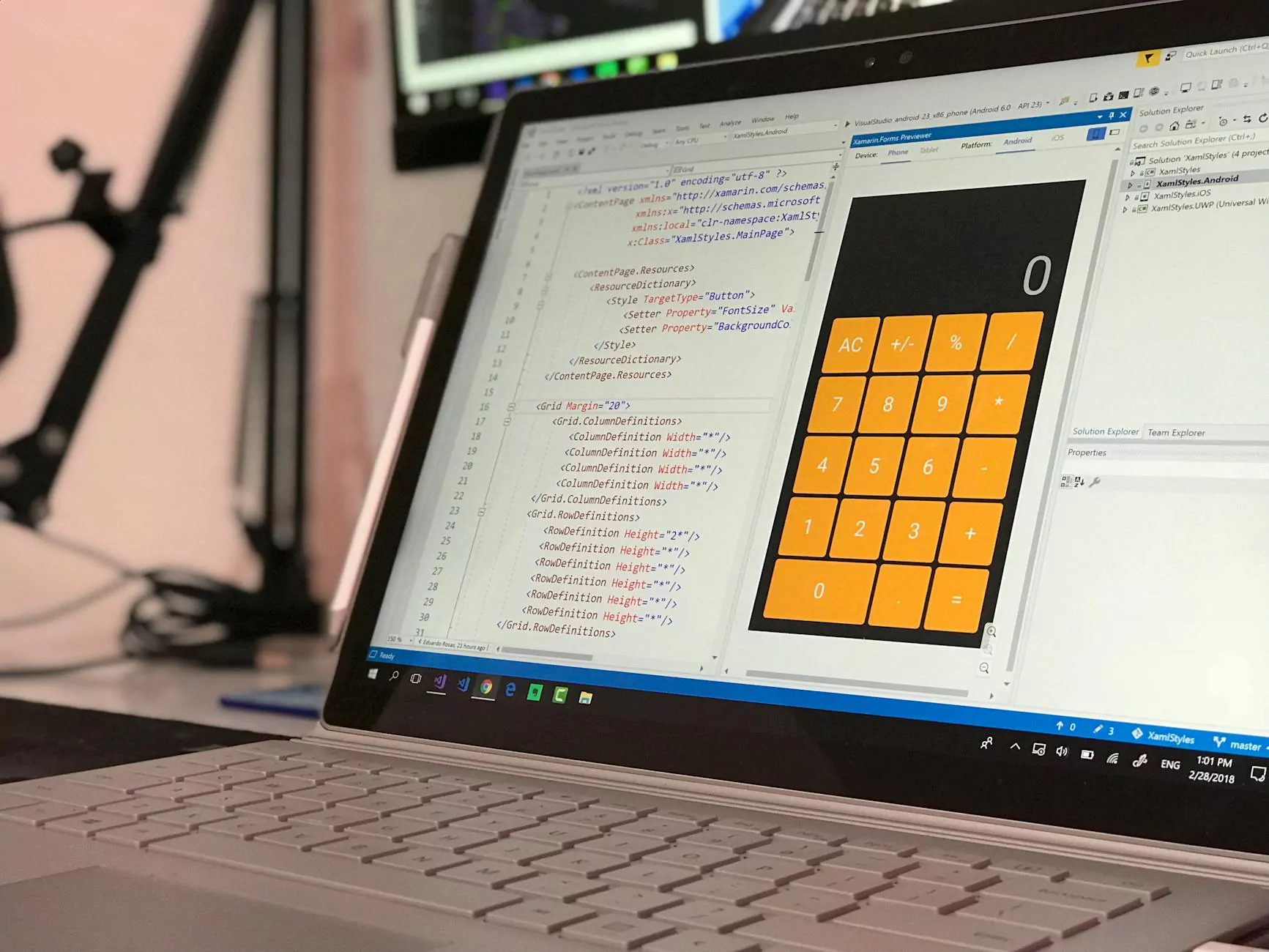Healthcare App Development Trends, Features and Challenges in 2022
Blog
Introduction
Welcome to Coyote Website Design's comprehensive guide on healthcare app development trends, features, and challenges in 2022. In the rapidly evolving digital healthcare landscape, staying updated with the latest trends and incorporating cutting-edge features in your healthcare apps is crucial.
The Growing Importance of Healthcare Apps
In recent years, healthcare apps have played a significant role in transforming the way we access medical information, receive healthcare services, and monitor our well-being. These mobile applications have revolutionized the healthcare industry by enabling doctors, patients, and healthcare providers to interact seamlessly.
With the advancements in technology and the increasing adoption of smartphones, healthcare apps have become an essential part of our lives. They have empowered individuals to take control of their health, facilitated remote consultations, and streamlined healthcare systems.
Current Trends in Healthcare App Development
As we step into 2022, several trends are reshaping the healthcare app development landscape. These trends are not only influencing user experience but also revolutionizing patient care, data management, and overall healthcare delivery. Let's explore some of the most prominent trends:
1. Telemedicine and Remote Patient Monitoring
The COVID-19 pandemic accelerated the adoption of telemedicine and remote patient monitoring. Healthcare apps now provide virtual consultations, allowing patients to connect with healthcare professionals from the comfort of their homes. Advanced features like real-time health monitoring and remote diagnostics have further improved patient care.
2. Artificial Intelligence and Machine Learning
Artificial Intelligence (AI) and Machine Learning (ML) have immense potential in transforming healthcare app development. These technologies enable intelligent algorithms that can analyze vast amounts of healthcare data, predict disease outcomes, personalize treatment plans, and improve diagnostic accuracy.
3. Wearable Devices Integration
Integrating healthcare apps with wearable devices is another significant trend in 2022. These devices capture real-time health data, such as heart rate, sleep patterns, and physical activity, to help users track their overall well-being. Healthcare apps can sync and analyze this data, providing valuable insights for both patients and healthcare professionals.
4. Blockchain for Data Security
Blockchain technology is gaining traction in healthcare app development due to its potential to enhance data security and privacy. By creating a decentralized and tamper-resistant database, healthcare apps can securely store sensitive patient information, enable secure transactions, and ensure data integrity.
5. Gamification for Health Engagement
Gamification techniques are increasingly being incorporated into healthcare apps to boost user engagement and motivation. By introducing game-like elements, such as challenges, achievements, and rewards, healthcare apps can encourage users to adopt healthy habits, adhere to medication schedules, and manage chronic conditions effectively.
Key Features to Include in Healthcare Apps
When developing a healthcare app, incorporating essential features is crucial to provide a seamless user experience and deliver maximum value. Here are some key features to consider:
1. Patient Data Management
Efficient management of patient data is vital for healthcare apps. Implement features to securely store and retrieve patient information, such as medical history, allergies, lab results, and prescriptions. Ensure compliance with data protection regulations like GDPR and HIPAA.
2. Appointment Scheduling and Reminders
Allow patients to book appointments with healthcare providers, view available time slots, and receive automated reminders for upcoming appointments. Streamline the scheduling process and minimize no-shows through easy-to-use features.
3. Prescription Management
Integrate prescription management functionality to enable patients to request prescription refills, track medication usage, and receive reminders to take medications on time. Ensure seamless communication between patients and pharmacies.
4. Telemedicine and Video Consultations
Enable virtual consultations by integrating video calling and chat features directly within the app. Ensure secure and HIPAA-compliant communication channels to foster a seamless connection between patients and healthcare providers.
5. Health Tracking and Analytics
Incorporate features for tracking and analyzing health data, such as steps taken, calories burned, sleep patterns, and heart rate. Provide valuable insights and visualizations to help patients monitor their progress and make informed decisions about their well-being.
Challenges in Healthcare App Development
Developing healthcare apps comes with its fair share of challenges. Understanding and addressing these challenges is crucial to deliver high-quality healthcare apps. Some common challenges include:
1. Data Security and Privacy
Ensuring robust data security and privacy measures is vital when handling sensitive patient information. Implement measures like encryption, secure authentication, and regulatory compliance to safeguard patient data against unauthorized access.
2. User Interface and Experience
Creating a user-friendly and intuitive interface is essential for healthcare apps. Users should be able to navigate seamlessly and access the desired features easily. Focus on usability testing and incorporating user feedback to refine the user experience.
3. Interoperability and Integration
Healthcare apps often need to integrate with Electronic Health Record (EHR) systems, wearable devices, and other third-party services. Ensuring smooth interoperability between various systems and seamless data exchange is a significant challenge in healthcare app development.
4. Compliance with Regulations
Healthcare apps need to comply with strict regulations, such as GDPR and HIPAA, to protect patient privacy. Adhering to these regulations adds complexity to the development process and requires a thorough understanding of legal requirements and best practices.
5. Feedback and Iteration
Collecting user feedback and continuously refining the app based on user insights is crucial for success. Implement mechanisms to gather user feedback, monitor app performance, and iterate on features to meet evolving user needs and expectations.
Conclusion
In conclusion, healthcare app development is rapidly evolving, driven by emerging trends and the increasing need for innovative digital healthcare solutions. To stay ahead in this ever-changing landscape, it is essential to stay updated with the latest trends, incorporate key features, and address the challenges that come with developing healthcare apps. With Coyote Website Design, your business can leverage cutting-edge technology and expert guidance to build healthcare apps that provide exceptional user experiences and deliver maximum value in the healthcare industry.



